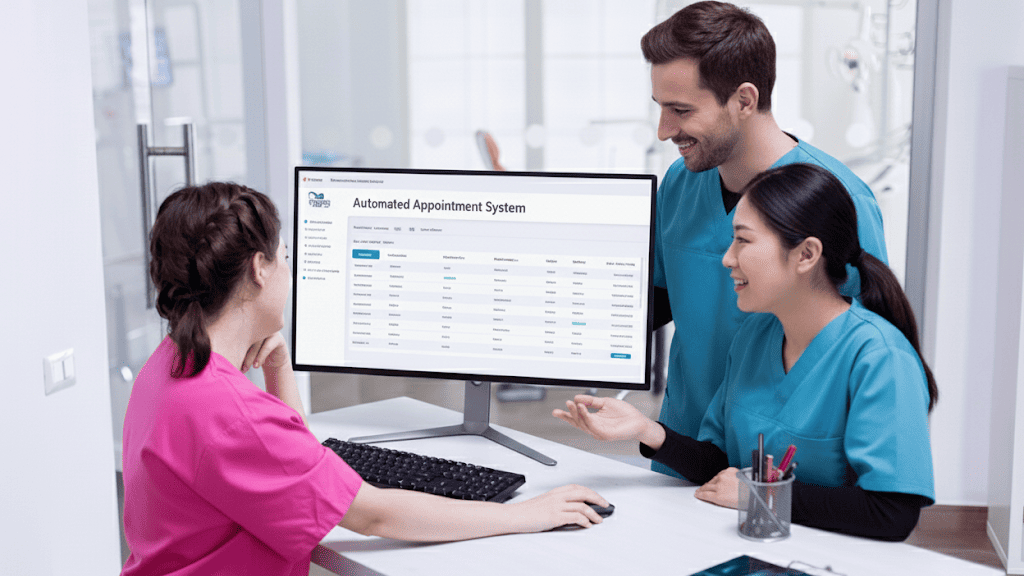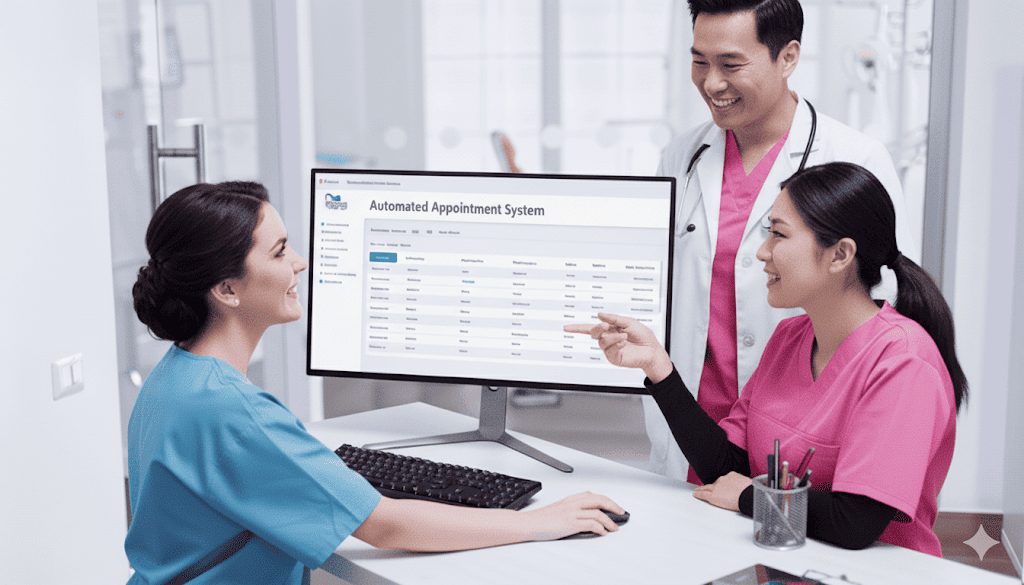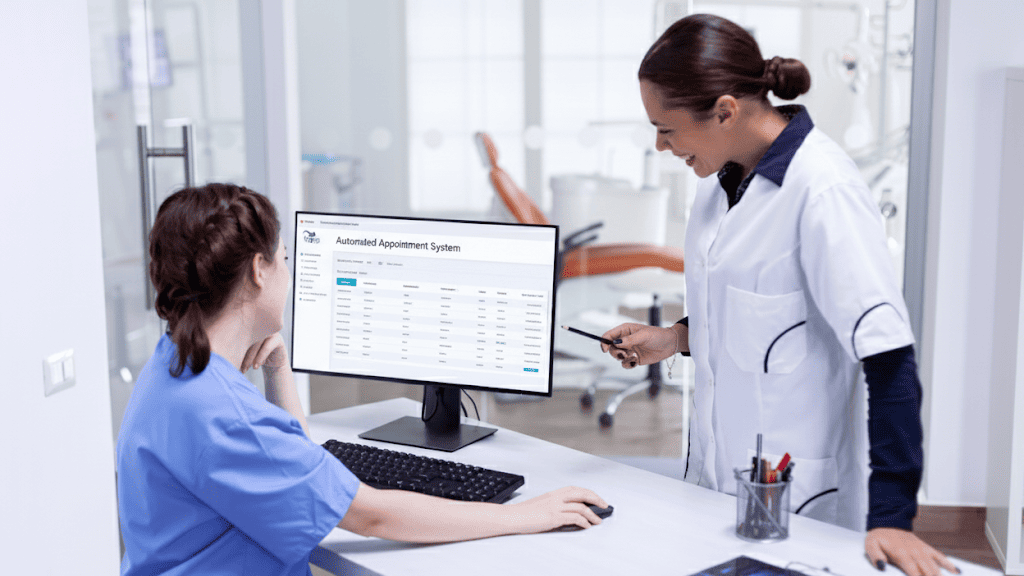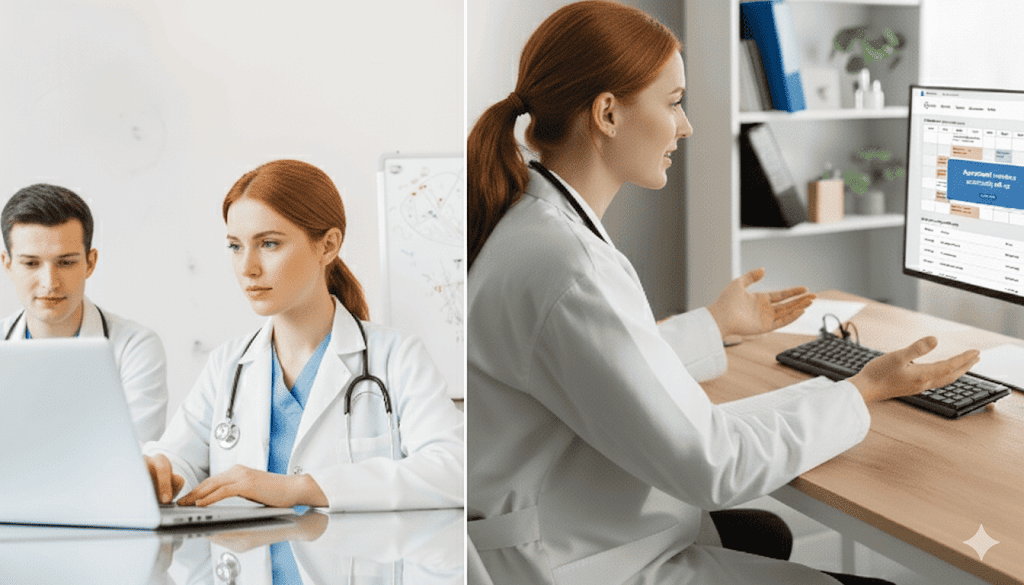Automated Appointment Reminders in Tebra: How They Reduce No-Shows
💡 Automated appointment reminders in Tebra can significantly reduce no-shows. This is through improving patient communication, streamlining...
6 min read
Gregory Vic Dela Cruz : Updated on September 18, 2025

Table of Contents
No-shows are one of the most persistent problems facing small and independent practices. Every missed appointment represents lost revenue, wasted provider time, and disrupted patient care. For a clinic that runs on thin margins, even a few no-shows per day can cost thousands of dollars each month. Staff try to mitigate the issue with phone calls, but patients rarely answer. The workload quickly overwhelms front desk teams.
That’s where automated appointment reminders in Practice Fusion come in. Instead of manual calls, you can use SMS, email, or voice reminders triggered directly from the EMR. Patients receive clear, timely reminders they can confirm or reschedule with a tap. Clinics benefit from improved attendance, more predictable scheduling, and less staff burnout.
In this article, we’ll explain the scale of the no-show problem in healthcare. We'll discuss what automated reminders are, and why they’re the answer. We’ll also cover key benefits for Practice Fusion users and workflow examples. We'll close with success stories and how Curogram integrates seamlessly with Practice Fusion.
Read on to learn how to set up an appointment reminder system that transforms your practice.
No-shows are a direct hit to a clinic’s bottom line. For small practices, even a 10% no-show rate can translate to thousands of dollars in lost revenue each month. Providers also waste valuable time when schedules aren’t filled, reducing overall utilization. Automated appointment reminders in Practice Fusion help stabilize revenue by reducing the frequency of missed visits.
When patients skip visits, continuity of care breaks down. Missed follow-ups for chronic conditions or preventive screenings can delay diagnoses and worsen outcomes. Appointment reminders Practice Fusion users implement ensure patients stay engaged in their care journey, improving adherence and health outcomes over time.
Without automation, staff spend hours each week calling patients to confirm visits. Most calls go unanswered, and voicemails often fail to prompt action. This repetitive work drains productivity and increases stress, contributing to burnout. Automated patient reminders healthcare systems eliminate these inefficiencies by sending reliable, trackable notifications at scale.
No-shows don’t just affect the patients who miss appointments—they also affect those who could have used the slot. Patients who are waiting for an opening or who need urgent care are delayed when empty slots go unused. By reducing no-shows with reminders, clinics improve access to care for the broader patient population and make better use of limited resources.
Chronic no-show problems create long-term financial instability for small and independent practices. Lower revenue leads to tighter budgets, making it harder to invest in staff, technology, or expanded services. This cycle can harm growth and reduce overall care quality. Automated appointment reminders in Practice Fusion how they reduce no-shows is not just about operational convenience—it’s about safeguarding the financial health of the practice.
For small and independent practices, tackling no-shows is not optional. It’s a financial, operational, and clinical necessity. The right Practice Fusion appointment reminder system makes it possible to reduce no-shows with reminders while protecting staff and improving patient care.
Automated reminders can be delivered via SMS, email, or voice calls. SMS reminders for small practices are often the most effective, as patients check their phones constantly. Emails can provide more detailed instructions, while voice reminders reach patients who prefer phone calls. The best Practice Fusion scheduling reminders combine multiple channels to maximize reach.
Manual calls are inconsistent, time-consuming, and often ineffective. Automated appointment reminders in Practice Fusion send messages consistently, at the right time, and in a format patients respond to. They also scale easily, allowing one staff member to manage hundreds of reminders instead of dozens of calls.
Any reminder workflow must comply with HIPAA regulations. A HIPAA-compliant reminder workflow ensures messages are encrypted, consent is tracked, and audit trails are maintained. Consumer SMS apps are not secure enough for patient communication. Automated systems integrated with Practice Fusion provide the safeguards clinics need to reduce no-shows without risking compliance violations.
Automated patient reminders healthcare solutions are not just a convenience—they are essential to running an efficient, compliant, and patient-friendly practice.
Studies consistently show that automated reminders reduce no-shows by 20–30%. For small practices, this means filling schedules, protecting revenue, and ensuring providers use their time effectively. Automated appointment reminders in Practice Fusion how they reduce no-shows is clear: consistent communication keeps patients on track.
When schedules are predictable, staff can manage workflows more effectively. Providers see fuller calendars, billing teams process claims without delay, and administrators can plan resources with confidence. Appointment confirmation system Practice Fusion integrations keep operations running smoothly.
Reminders aren’t just about showing up—they also prepare patients for their visits. Pre-visit instructions, fasting requirements, or secure links to online forms ensure patients arrive ready. This reduces last-minute cancellations and improves satisfaction with the overall experience.
These benefits transform how small and independent practices operate. By reducing no-shows with reminders, clinics improve revenue, efficiency, and care quality simultaneously.

Sending reminders one to two days before an appointment is the most common workflow. It gives patients enough time to confirm or reschedule while allowing the clinic to fill cancellations. With automated appointment reminders in Practice Fusion, these messages go out consistently and require no manual effort from staff.
Even with advance reminders, patients sometimes forget. A same-day or morning-of reminder acts as a final nudge. SMS reminders for small practices are especially effective here, as patients check text messages frequently. These notifications drastically reduce last-minute cancellations and no-shows.
Some visits require preparation—fasting before labs, bringing prior imaging, or completing intake forms. Automated reminders can include clear instructions and links to secure online forms. When tied to the Practice Fusion appointment reminder system, patients arrive prepared, reducing wasted visits and provider frustration.
Specialties like imaging, surgery, and labs often require detailed preparation. Automated patient reminders healthcare systems allow practices to create templates tailored to these appointments. For example, an imaging center can send reminders with fasting rules, while a surgical clinic can include arrival times and consent instructions.
A family practice implemented SMS reminders as part of their Practice Fusion scheduling reminders. Within two months, the clinic reduced no-shows by 25%, stabilized revenue, and decreased staff phone calls. Patients reported appreciating the convenience of quick confirmations.
A specialty clinic dealing with procedure cancellations added morning-of reminders that included prep instructions. This workflow reduced last-minute cancellations by 20% and allowed providers to use their time more efficiently.
A multi-location group practice adopted automated appointment reminders in Practice Fusion. By automating reminders across sites, the group filled empty slots faster and increased monthly revenue without adding staff.
Curogram connects directly to the Practice Fusion appointment reminder system. This means reminders automatically pull appointment details like date, time, provider, and location from the schedule. Clinics never have to worry about sending outdated or mismatched reminders—everything is synced in real time.
Every practice has unique needs. With Curogram, automated reminders can be tailored by provider, location, or even patient language preference. For example, pediatric visits may include vaccine prep instructions, while specialty visits include lab requirements. Language customization ensures patients receive reminders they can fully understand, improving compliance and satisfaction.
Curogram’s HIPAA-compliant reminder workflows encrypt every message, track patient responses, and log all activity for audit purposes. Administrators can view confirmation rates, reschedules, and opt-outs at a glance. This combination of automation and tracking ensures compliance while giving practices actionable insights into their reminder effectiveness.
By integrating directly with Practice Fusion, Curogram turns reminders into a seamless, automated process that reduces no-shows, protects PHI, and enhances patient experience across all types of clinics.
No-shows drain revenue, disrupt care, and overwhelm staff. For small and independent practices, tackling this issue is essential to sustainability. Automated appointment reminders in Practice Fusion are the way forward. How they reduce no-shows is simple. They provide consistent, HIPAA-compliant communication that keeps patients engaged and accountable.
By using an appointment reminder system, clinics reduce their no-shows and improve efficiency. Ultimately, this enhances patient satisfaction. The benefits compound: fuller schedules, higher revenue, and less staff burnout. HIPAA-compliant workflows also protect clinics from compliance risks. As a Practice Fusion user, this ensures every message is secure and audit-ready.
Curogram makes appointment management easy. With seamless integration, custom reminders, and SOC 2 + HIPAA certification, Curogram holds the key.
Want to reduce no-shows with Practice Fusion? Get a free demo today.

💡 Automated appointment reminders in Tebra can significantly reduce no-shows. This is through improving patient communication, streamlining...

💡Using automated appointment reminders in Athenahealth is an effective way to reduce no-shows. Missed appointments can cost a practice thousands of...

💡 HIPAA-compliant text reminders in Practice Fusion are easy to set up. Integrations can help streamline your clinic's workflows. Setting up is...